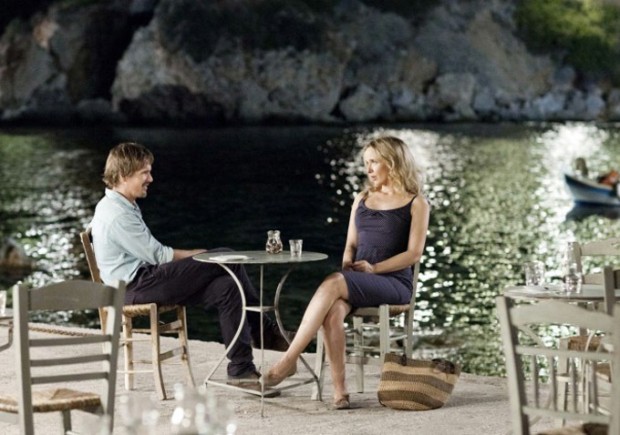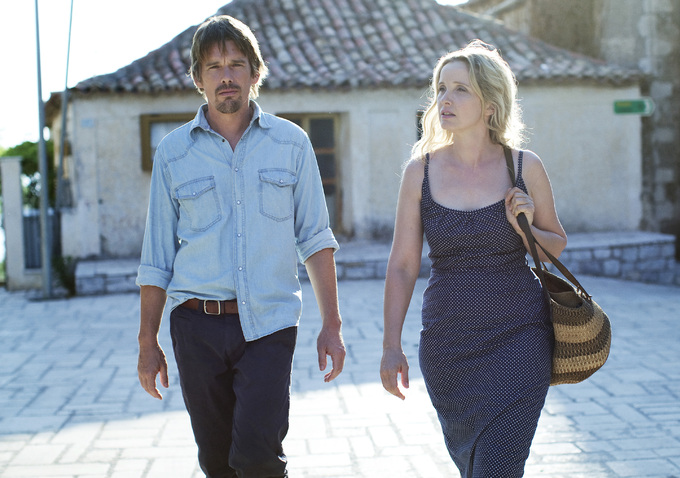Spanning the course of 18 years, Richard Linklater‘s incomparable Before trilogy establishes itself as one of – if not the – great American chronicles of our time, touching on most every real conflict in the lives of those in love with a modest, caring and honest hand. The third film in the set, Before Midnight, answers any and all lingering questions posed at the end of Before Sunset within minutes, then spends the rest of its 108-minute running time building a whole new account of Jesse (Ethan Hawke) and Celine (Julie Delpy) and what their love has become.
Linklater, over two accomplished decades of filmmaking, has emerged as one of the most under-appreciated, unbelievably confident artists working in cinema today. It has never been as apparent as it is here, the writer/director making every moment feel careless, natural and full of life.
The performances he has gotten out of Hawke and Delpy in the past two decades deserve awards that don’t appropriately exist. These are real people we are watching, interacting and conversing like real people do. Or must do. With a calm camera and an even calmer script (which Linklater once again co-writes alongside Hawke and Delpy), we watch something special unfold for two hours, allowing for every bit of comedy and drama to be wrung out of what has become of a timeless romance so affected by the passage of time.

As the duo has gotten older, they have only grown more complex and compelling to watch. The conversations here are more volatile than ever before, and the insults tossed from one side of the room to the other sting us as much as it stings them. These are couples we know; perhaps couples we are. With this third installment, we are thrown into the insecurities of middle age and the hard acceptance of dreams that never came true and of regrets that we have and won’t ever go away.
The most is made of the film’s Greece setting, Linklater and cinematographer Christos Voudouris finding the obvious beauty in wide shots of the Greek ruins and the not-so-obvious beauty of an extended chat about art and perception between writers. Though these films have always filled themselves with talk about art and politics, it has never felt overly pretentious or preachy. There is less of that here than installments past, the script lasering in on these two people and the way they feel about each other
Hawke offers one of the funniest turns in his career (the movie itself is certainly the funniest in the series), while Delpy continues to deepen Celine, one of the most wonderful characters in cinema. These are the creations we read about when we read about great art. Characters who become more than cogs in a plot, offering a bevy of questions and answers about the lives we lead and how we lead them.


